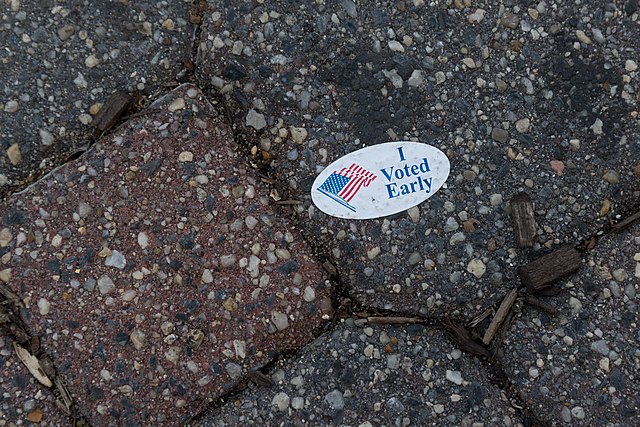The night of Oct. 5, several friends and I piled into my dorm room to watch the results of the 2024 election — to watch an indicted felon become president-elect of the United States. Despite being charged with 34 counts of falsifying business records earlier this year, Donald Trump himself was able to vote. In a sweeping, hypocritical failure of the democratic system, four million Americans were barred from voting in this presidential election due to having felony convictions, not unlike Trump. The former president may be in unprecedented territory, but voting should be this easy for everyone, not just the elite and the privileged.
On principle, disenfranchisement laws that prevent Americans with felonies from voting are undemocratic; they violate the foundation of a “government by the people” on which this country is supposed to operate. Due to the existence of these laws across 48 states, 1.7% of the voting-age population is unable to participate in the election process. While this is an already staggering figure, it is even more concerning when we consider that marginalized racial identities are disproportionately prosecuted by the criminal justice system, and, consequently, disenfranchised at a much higher rate than their white counterparts. Not only does this mean that citizens of color are more greatly impacted by disenfranchisement laws, it suggests a disparity in the party affiliations of ineligible voters, as a majority of non-white American consistently vote for democratic presidential candidates. Thus, election results from the current pool of eligible voters do not accurately reflect the views of the American people as a whole. By making the right to vote conditional, the very promise of power in the people falls short.
Disenfranchisement laws are especially concerning with regard to citizens in active incarceration. Laws that legalize forced manual labor in prisons persist around the country, reflecting the long-standing practice of exploiting incarcerated people as an inexpensive workforce; prisoners are paid only $0.33 to $1.41 an hour on average and make do with the bare minimum when it comes to food, clothes and hygiene supplies. Despite being active members of the country’s labor force, involuntarily and without fair pay I might add, these people are barred from voting. They can benefit the country economically, but they cannot have a say in how it is run — a concerning dichotomy in a country that prides itself on justice for all.
In conclusion, the disenfranchisement of individuals with felony convictions represents a profound failure of the democratic process in the United States, undermining the very principles of political equality and participation. While millions of Americans are stripped of their right to vote, the systemic racial disparities in the criminal justice system make this issue even more egregious. Furthermore, the continued exploitation of incarcerated people, many of whom are denied both the right to vote and fair wages for their labor, exemplifies a troubling contradiction within a nation that claims to champion freedom and equity. The failure to extend the right to vote to all citizens is a grave injustice that perpetuates inequality and denies people the opportunity to fully engage in the democratic process. Until these laws are abolished, the promise of a truly representative democracy will remain an incomplete ideal.
Contact the editor(s) responsible for this story: Caitlin Donovan




